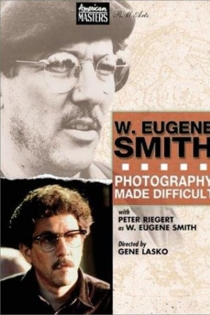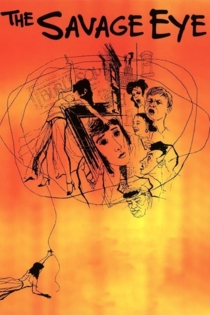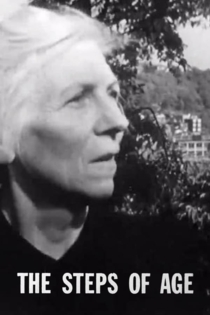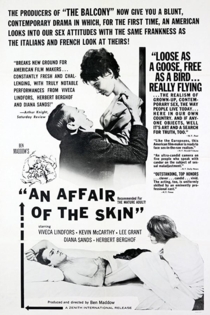
Ben Maddow
1909 - 1992Benjamin D. Maddow (August 7, 1909 in Passaic, New Jersey – October 9, 1992 in Los Angeles, California) was a prolific screenwriter and documentarian from the 1930s through the 1970s. Educated at Columbia University, Maddow began his career working within the American documentary movement in the 1930s.
In 1936 he co-founded the short-lived left-wing newsreel The World Today. Under the pseudonym of David Wolff, Maddow co-wrote the screenplay to the Paul Strand–Leo Hurwitz documentary landmark, Native Land (1942).
He earned his first feature screenplay credit with Framed (1947). Other screenplays include Clarence Brown's Intruder in the Dust (1949, an adaptation of the William Faulkner novel), John Huston's The Asphalt Jungle (1950, for which he received an Academy Award nomination), Johnny Guitar (1954, credited to Philip Yordan, God's Little Acre (1958, an adaptation of the Erskine Caldwell novel officially credited to Philip Yordan as a HUAC-era "front" for Maddow), and, again with Huston, an Edgar Award for Best Mystery Screenplay) and The Unforgiven (1960).
As a documentarian he directed and wrote such films as Storm of Strangers, The Stairs, and The Savage Eye (1959), which won the BAFTA Flaherty Documentary Award. Maddow made his solo feature directorial debut with the striking, offbeat feature An Affair of the Skin (1963), a well-acted story of several loves and friendships gone sour and marked by the rich characterisations which had distinguished his best screenplays.
In 1961, Maddow and Huston co-wrote the episode "The Professor" of the 1961 television series The Asphalt Jungle. In 1968 he wrote a screenplay based on Edmund Naughton's novel McCabe; while a film adaptation of the novel was ultimately produced as McCabe & Mrs. Miller (1971), Maddow wasn't credited on the film. His final screenplay was for the horror melodrama The Mephisto Waltz (1970).
W. Eugene Smith: Photography Made Difficult
Gene Lasko
Peter Riegert, John Berger
The war in the South Pacific, a country doctor in Colorado, victims of industrial pollution in a Japanese village — all were captured in unforgettable photographs by the legendary W. Eugene Smith. This program showcases over 600 of Smith’s stunning photographs and includes a dramatic recreation in which actor Peter Riegert (Crossing Delancey, Local Hero) portrays the artist using dialogue take from Smith’s diaries and letters. Interwoven through the program are archival footage and interviews with family and friends of this brilliant, complicated man, whose work developed from twin themes of common humanity and social responsibility.
W. Eugene Smith: Photography Made Difficult

The Savage Eye
Sidney Meyers, Joseph Strick
Barbara Baxley, Gary Merrill
A journey through the dark side of 1950s Los Angeles. "The Savage Eye" is largely composed of documentary street footage, which, when coupled with its dramatized material, takes the form of a hybrid narrative about a divorcee who escapes to L.A. to eviscerate her past -- and all notions of love and faith -- with a boozy, cynical abandon.
The Savage Eye

The Steps of Age
Ben Maddow
Rose Spencer, Harvard Sylvia
Describes the challenges of aging as seen through the eyes of a woman, Mrs. Potter, whose husband becomes listless and unhappy following his forced retirement at age 65. She worries about him and knows that his lack of engagement is not emotionally healthy. When he dies after a few years of retirement, she gives up her home and goes to live with her daughter's family, which also presents challenges. The woman reflects on how to manage these life changes, and how to continue to live a rewarding, engaged life. She seeks a job but is turned away, apparently because the dress shop that is hiring prefers someone younger. She has some disagreements with her daughter about child-rearing. Ultimately, she and her daughter both conclude that they must show more respect and appreciation for one another.
The Steps of Age

